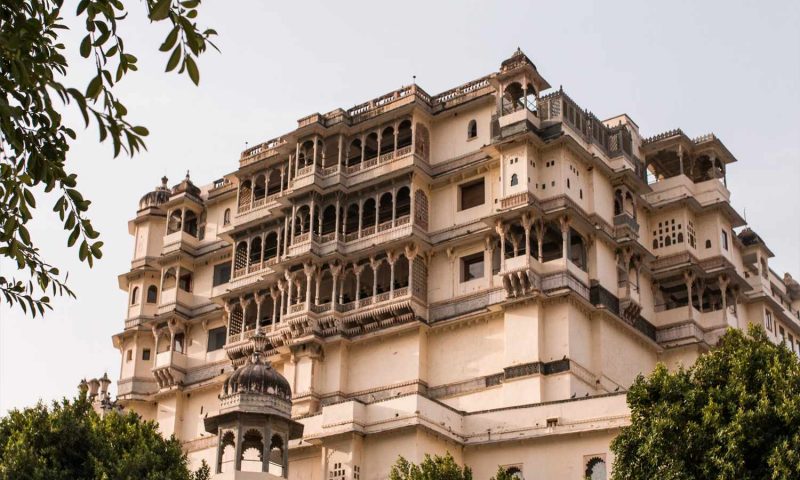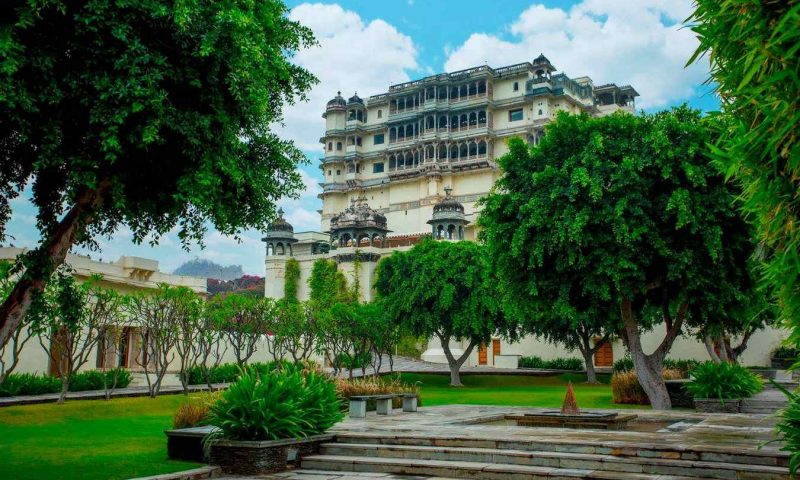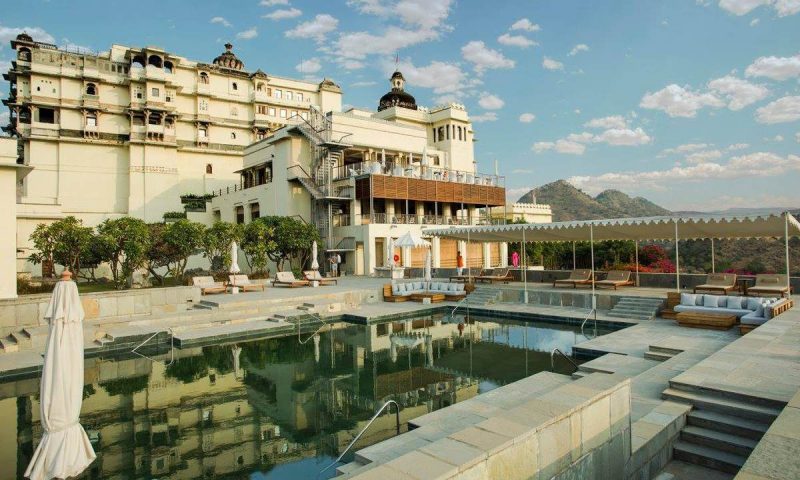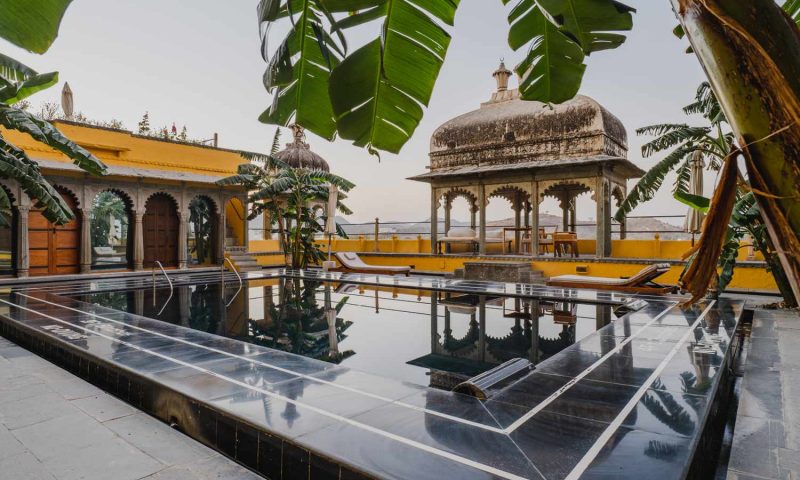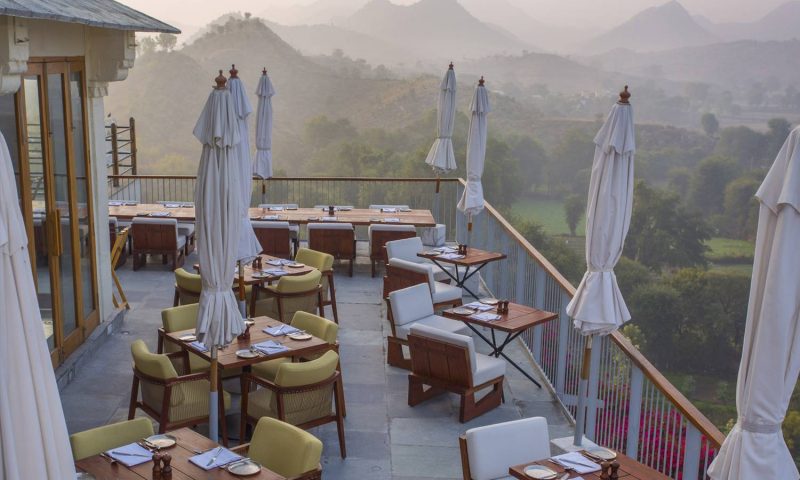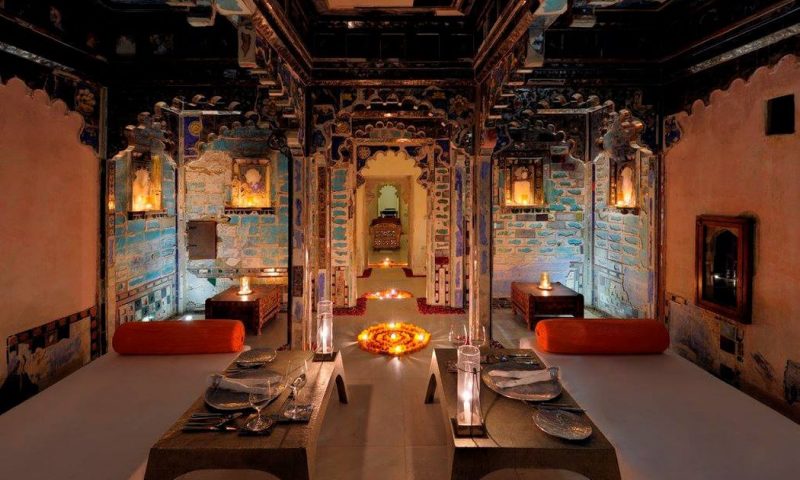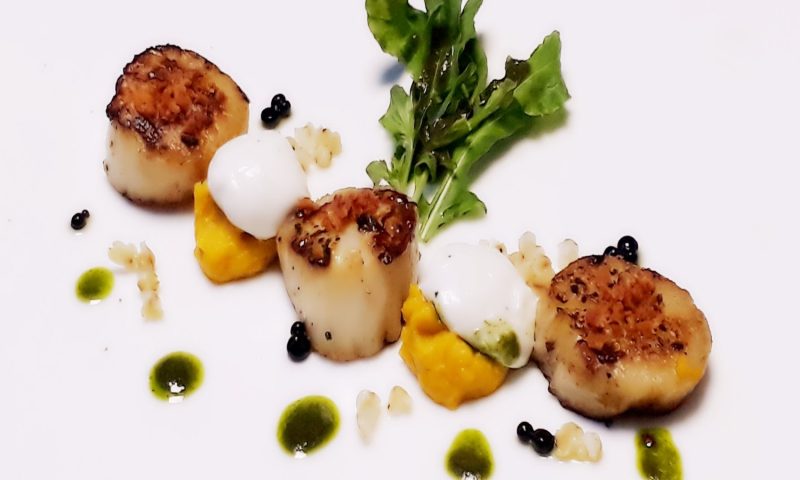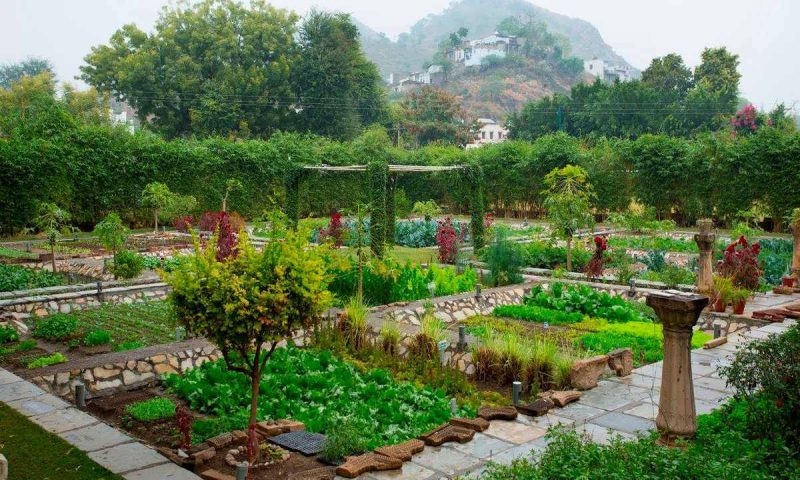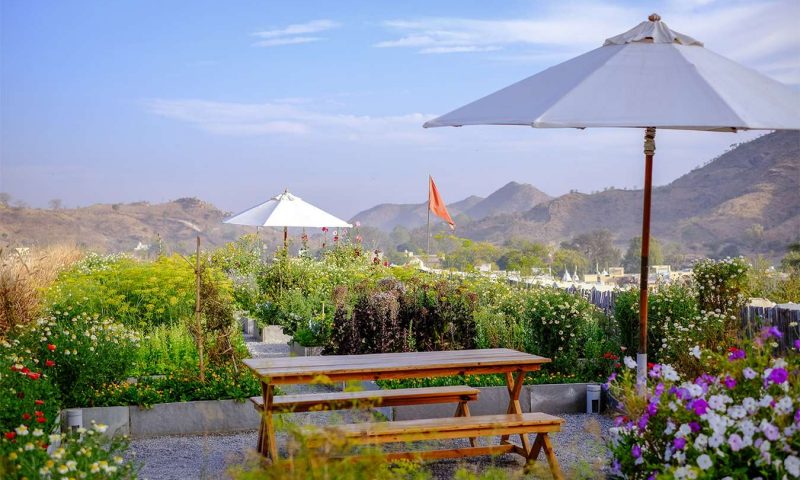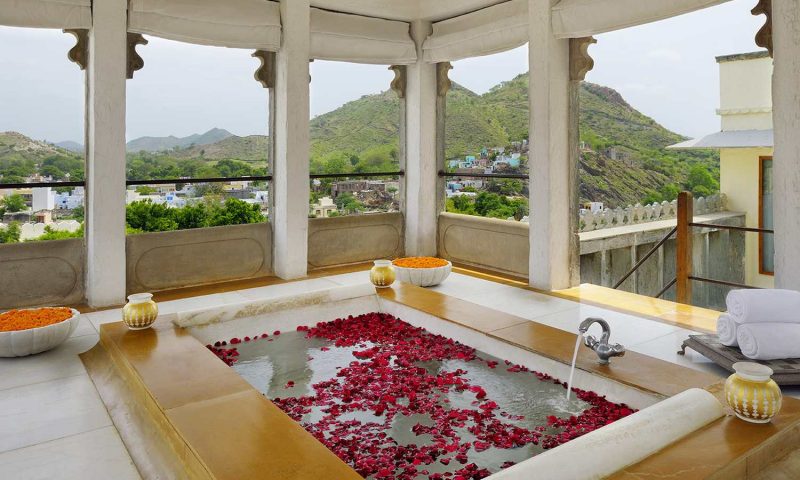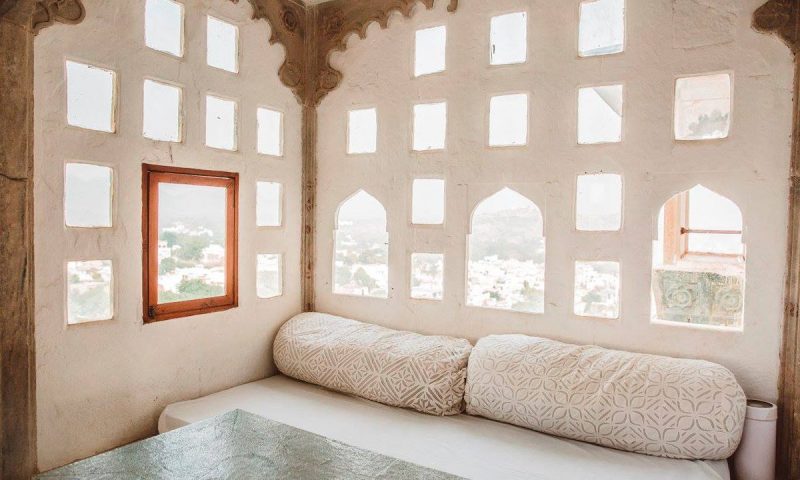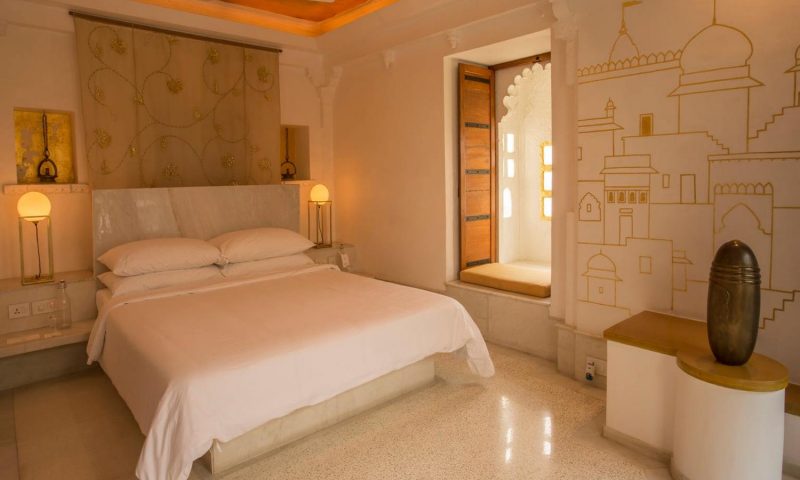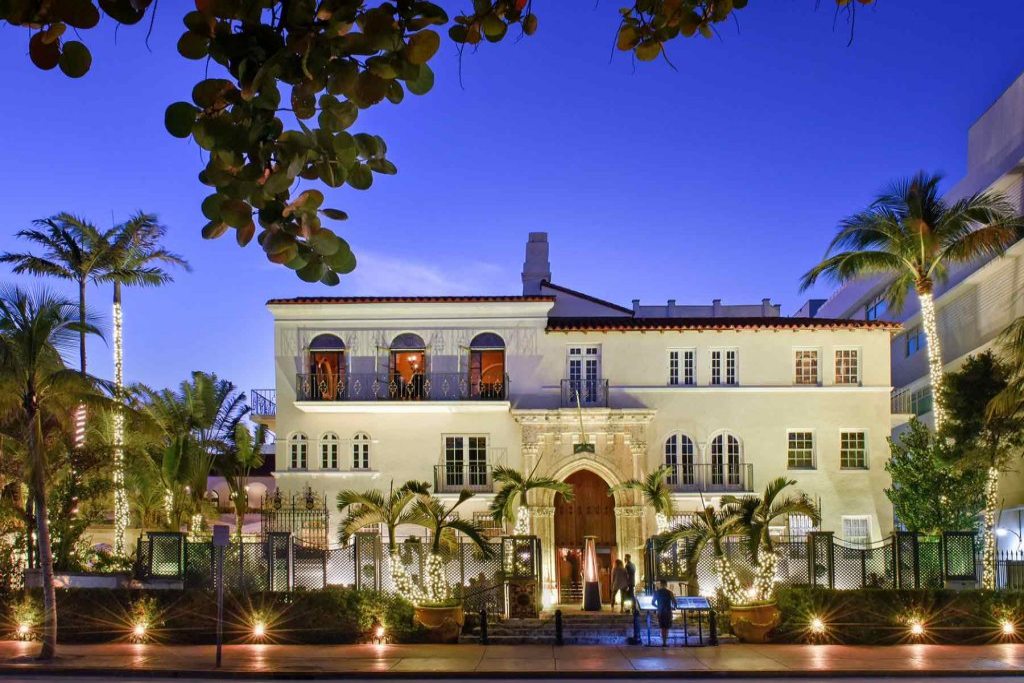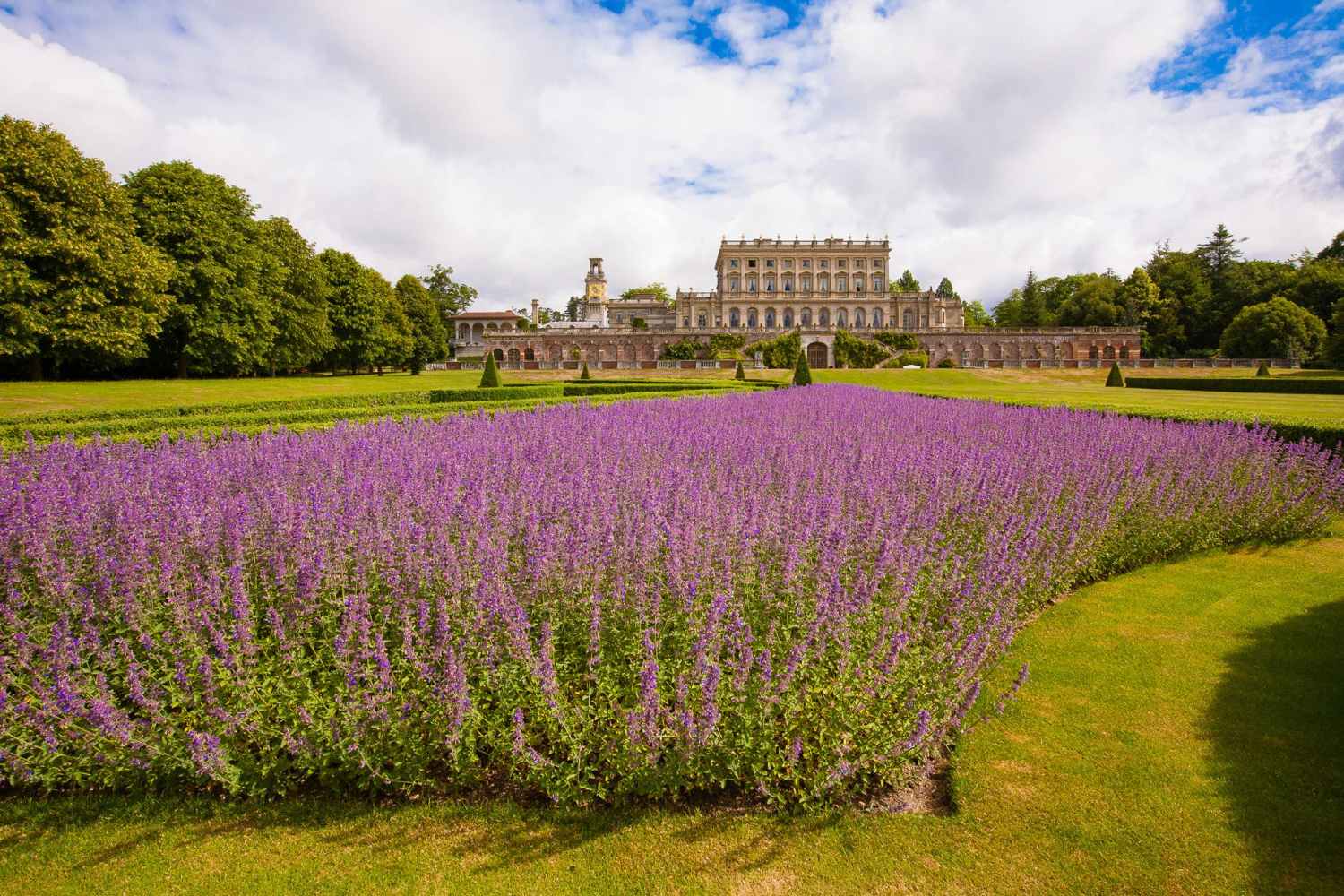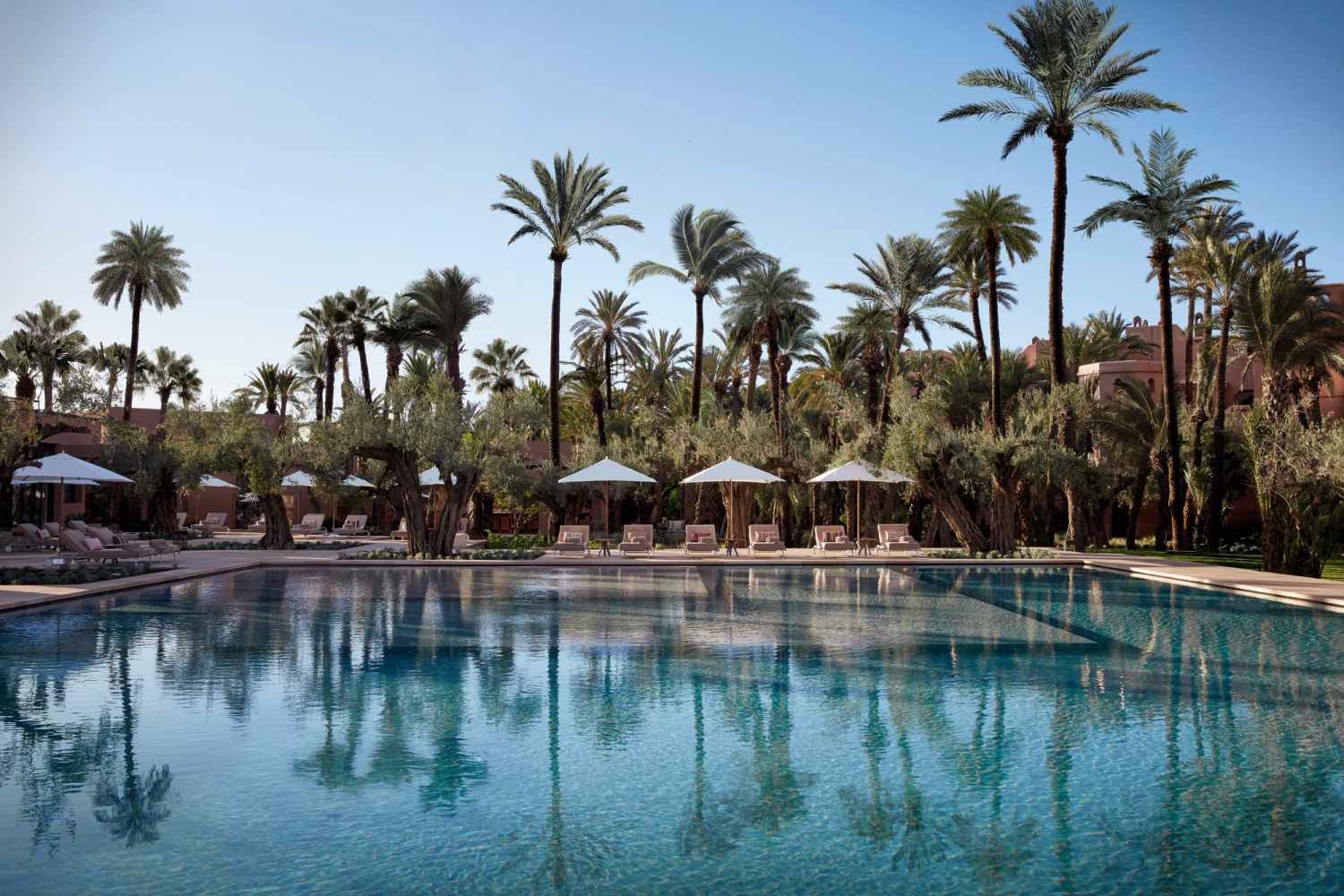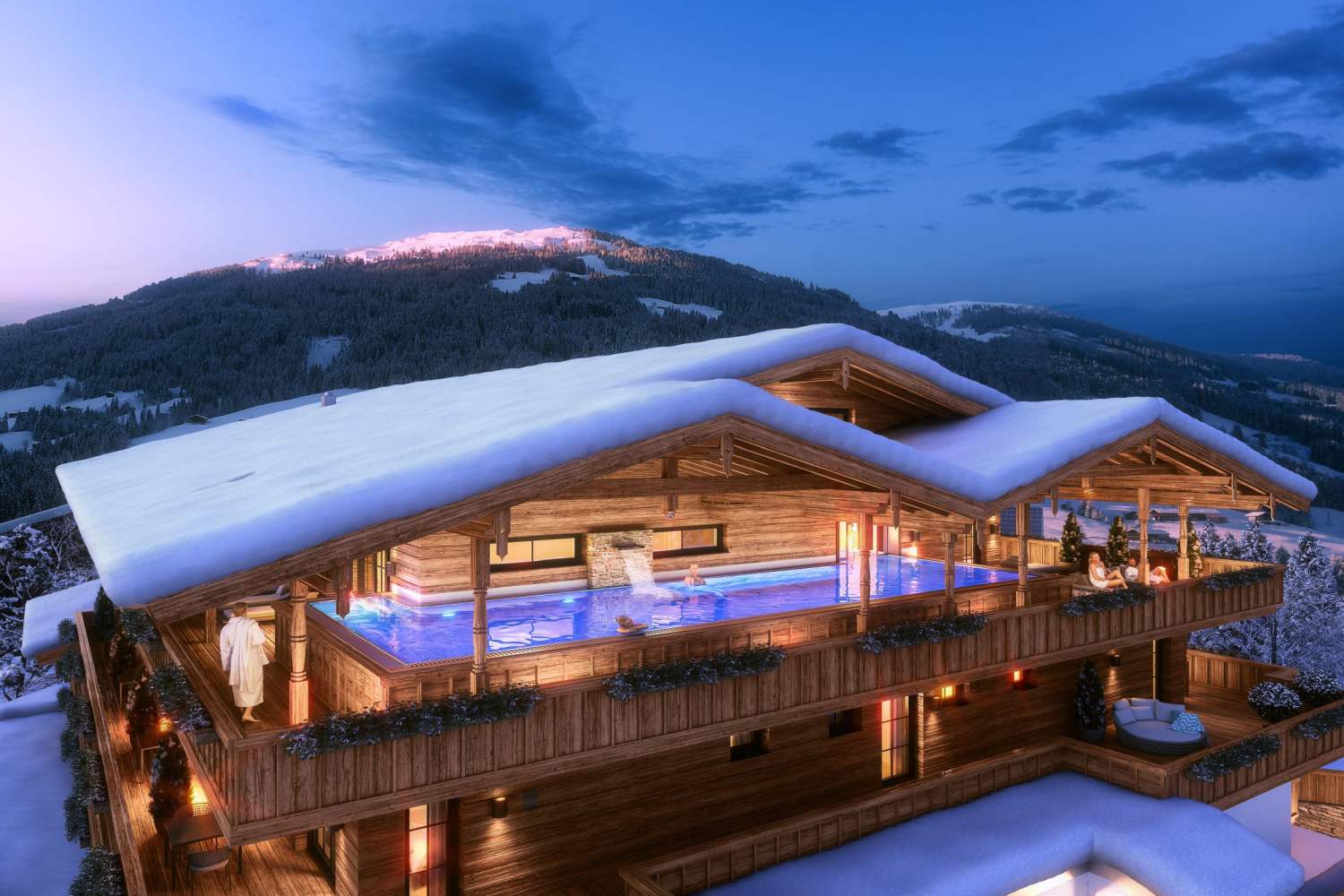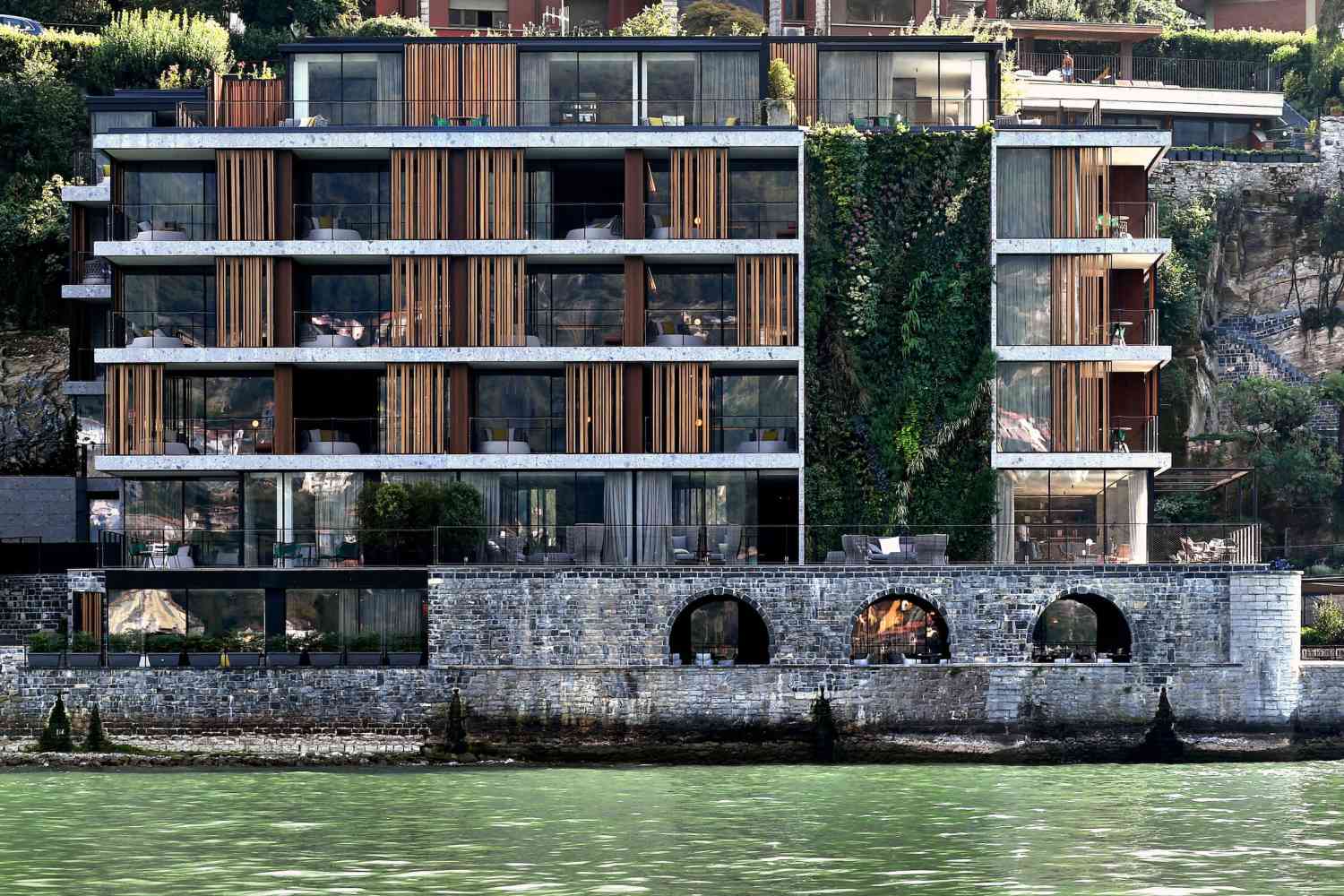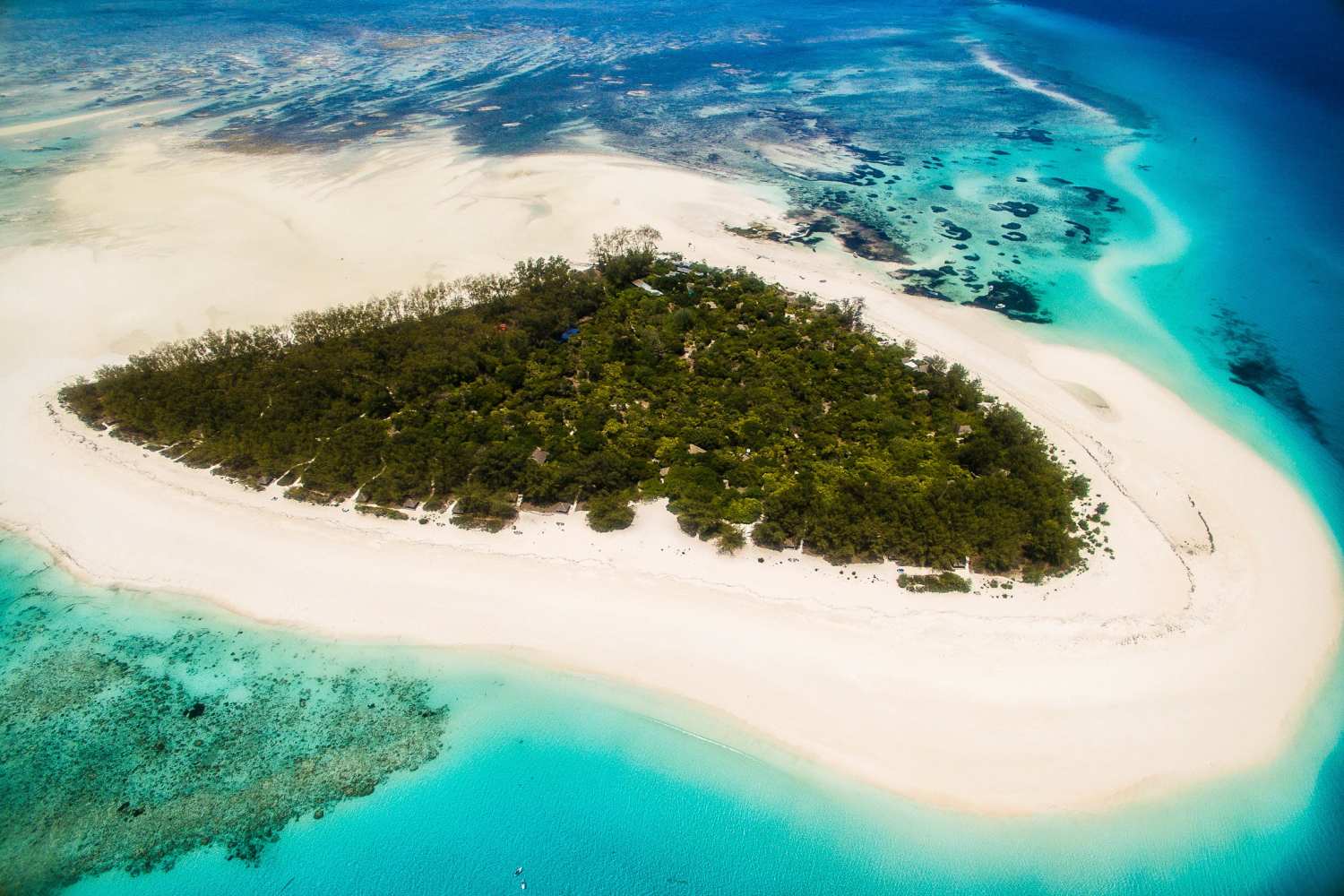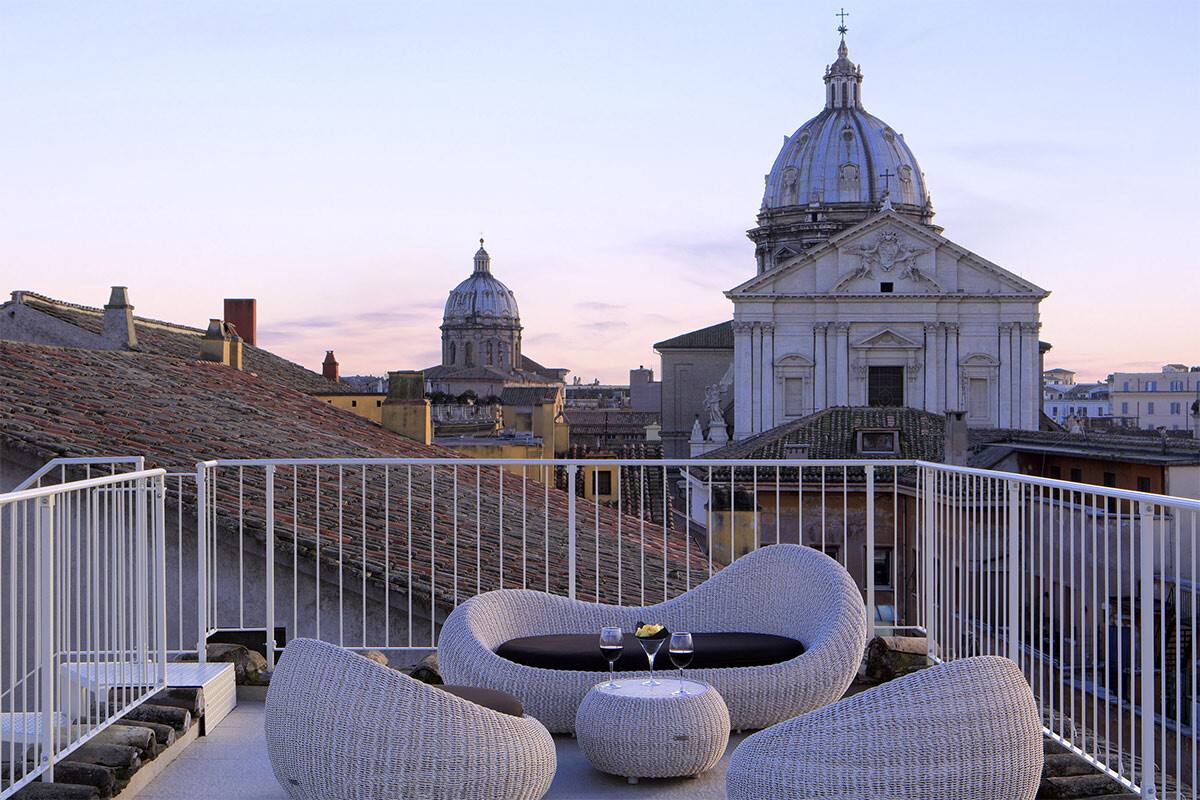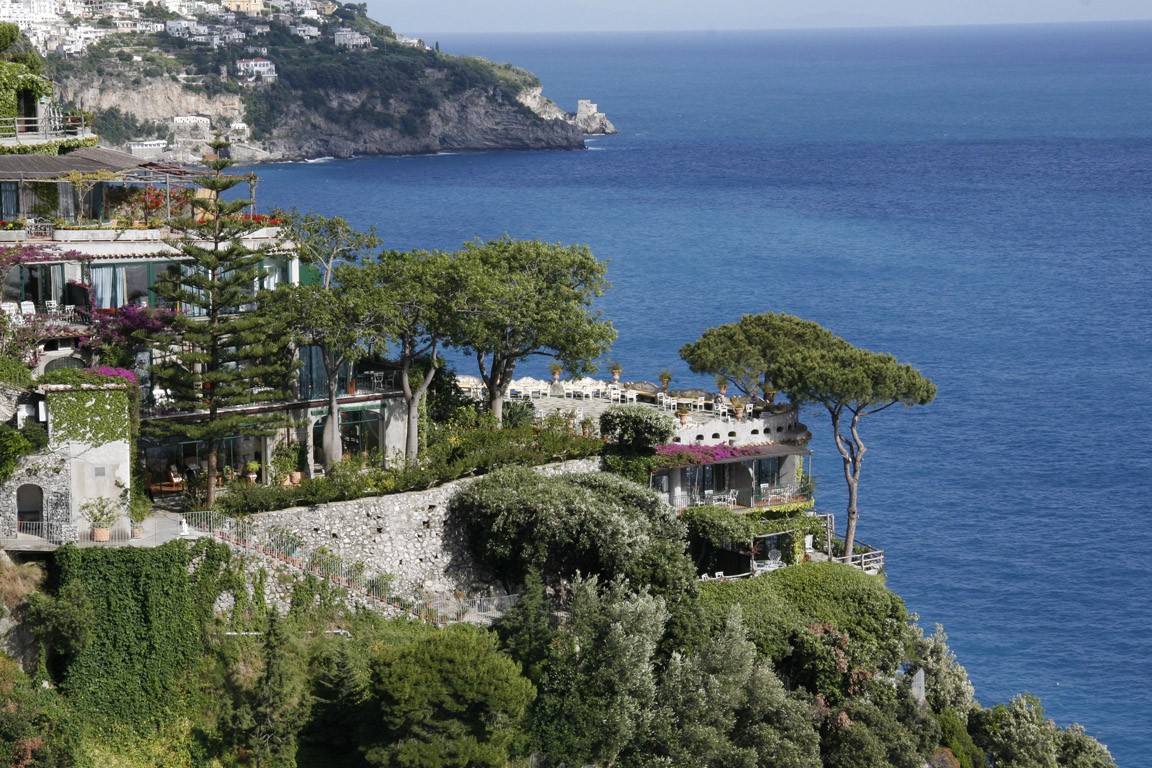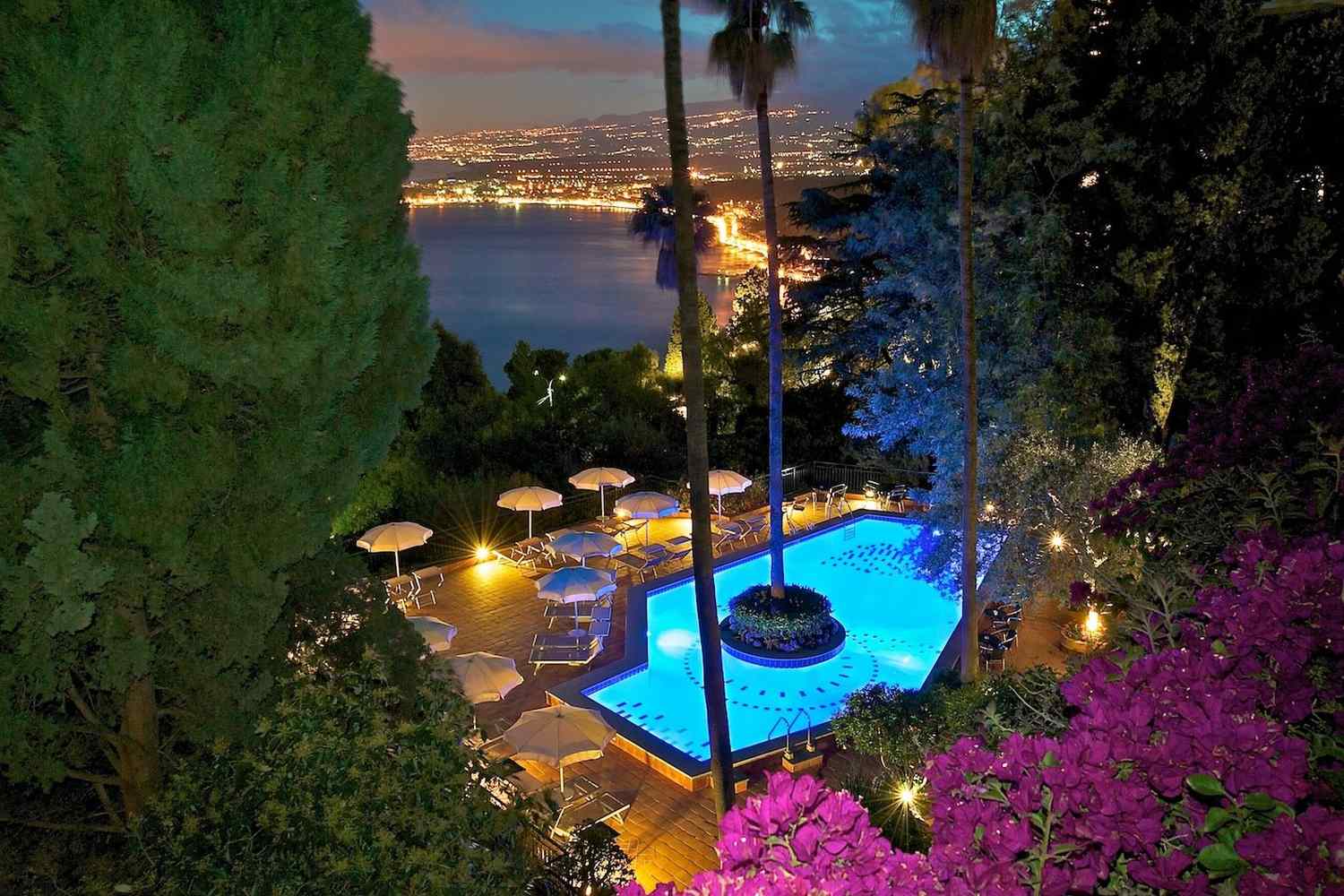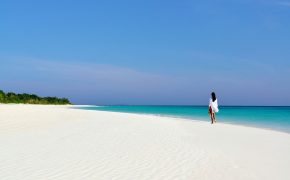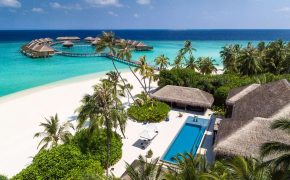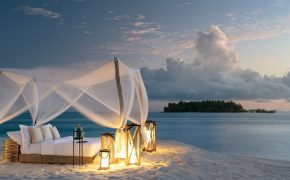Much more than just a place to stay, RAAS Devigarh sets the bar for next-generation India. Nestled in the Aravali Hills, just 45 minutes away from Udaipur, this 18th-century palace is an outstanding heritage property.
Responsibly-updated, eco-minded, and environmentally- conscious, it meets the needs of the modern traveller, whilst remaining a stunning testament to the beauty, charm, and magic of old-world Rajputana.
Holding a commanding position with views across the valley and the village of Delwara, RAAS Devigarh showcases an array of decorative styles and tranquil landscaped gardens. Minimalist interiors are polished and comfortable, beautifully juxtaposing the ancient, ornate backdrop.
Enter a world of Marwari horse murals, mirrored ante-chambers, courtyards, arches, turrets, swings, marble bowls of flowers and, come night, a thousand candles and stars. RAAS Devigarh is a quiet oasis, which allows you to relax in peace and enjoy the swimming pool, hot tub, gardens, fitness centre, spa and delightful views.
When you are ready to explore beyond the palace, we have collated a list of must-see places, presented as day-long itineraries, to give you a taste of the amazing activities available. Soak up everyday life in Delwara, enjoy a range of walks from the hotel gates, visit the City Palace of Udaipur or pay pilgrimage at one of the many fascinating temples.
THE HISTORY
Strategically placed on top of a hill in the Aravalli Range, RAAS Devigarh overlooks the village of Delwara. Its construction was completed in the year 1760, under the reign of Rajrana Sajja Singh II. The palace was originally built using locally mined marble, a practice that was followed once again during its restoration.
Strategically placed atop a hill in the Aravalli Range, RAAS Devigarh’s construction was completed in 1760 under the reign of Rajrana Sajja Singh II. The palace was originally built using locally-mined marble, a practice that was also followed during its restoration.
Previously known as Delwara Fort Palace, the building’s origins lie long before its completion in 1760. In recognition of his service to the famous Maharana Pratap of Mewar, the principality of Delwara was gifted to Rajrana Sajja Singh and his brother, Ajja Singh, following the battle of Haldighati in the year 1576.
The palace fortress, as seen today, is testament to its brave and loyal benefactors. With the coming of the modern age, it has been transformed into one of the most spectacular luxury travel destinations in the region.
The restoration of the hotel was undertaken by a team of 750 people over a period of almost 15 years. Finally, in 1999, Devigarh re-opened its doors, offering visitors a blend of new-world comforts and old-world charm.
SUITES
RAAS Devigarh offers 39 unique suites, each unmatched by any other hotel experience in Udaipur. Seamlessly melding contemporary luxury with ancient beauty, each suite comes with free wi-fi, a minibar, tea and coffee making facilities, and a room service menu.
The Garden Suites are our most modest but no less magical. For many of our repeat guests, they become a preference – beloved for their chic simplicity and lovely outdoor patios.
The Palace And Aravali Suites are often a must for first-time visitors – each is different, but all are magically romantic with soul-stirring views over the surrounding countryside and a sense of old-world Rajasthani mystery. For the ultimate in both privacy and luxury, opt for The Devigarh Suite, complete with its own swimming pool.
ARAVALI SUITE
The Aravali Suite offers guests a stay in the old Rajput palace which is both stately and authentic. Boasting complete privacy and spaciousness, their designs incorporate ornate and traditional motifs which are carved beautifully across long stretches of wall and flooring.
Equally arresting are the views on both sides, one across the spectacular Aravali hills and the other towards the impressive hotel interiors: the black marble Kamal [Lotus] Courtyard that depicts the image of a lotus in bloom, the Durbar Courtyard, and the Janana Courtyard.
DEVIGARH COMPLEX
The Devigarh Complex caters for your every need, and does so in style. The captivating golden bedroom extends onto a private sun deck and jacuzzi where guests can revel in the perfection of our most esteemed suite. This complex includes a private black granite pool and room enough to enjoy a secluded dining experience beside it.
The complex combines this suite with one of our Aravali Suites, which adjoins the pool area and accommodates 4 adults and 2 children, up to 12 years of age. The theme of the complex is inspired by the divine bond between Shiva, Shakti, and his beloved vahana [steed], Nandi.
GARDEN SUITE
The Garden Suites at Devigarh capture the serenity and majesty of the natural world. Overlooking the palace’s most beautiful garden, guests can lounge and relax in the seclusion of their private tented sitout.
Inside, the suite showcases intricate green and white marble works. The natural elegance of these rooms creates an atmosphere of peace and quiet that cannot be matched elsewhere in Udaipur.
PALACE SUITE
Keeping in touch with Devigarh’s aristocratic roots, the Palace Suites offer true luxury. Every suite has a unique design and their marble interiors are adorned by combinations of semi-precious stones. The pieces of modern artwork showcase the quality of the locals’ handicraft.
Matched in grandeur on the outside, guests are able to enjoy glorious views over the fields and mountains of the Rajasthani countryside and the quintessential village of Delwara. The tranquil aangans [courtyards] adjoined to these rooms are a final flourish of regal magnificence that you will not want to leave behind.
DINING
Devigarh offers a range of local and international cuisine to suit all tastes, and in a range of settings that show off the hidden jewels of the palace. Breakfast and Dinner are served in our restaurant, whilst Lunch can be enjoyed in the Bar. We can also serve you in your room, by the pool, or whichever part of the palace takes your fancy.
We have private dining options for parties of all sizes. In-suite dining is available 24/7; if you should desire anything, we’re on hand. We also have a dedicated wellness menu, which offers a range of options to boost your health using the purest of ingredients and including medicinal herbal teas.
CULINARY PHILOSOPHY
RAAS’s food philosophy is simple — fresh, seasonal, delicious. RAAS’ food philosophy focuses on a holistic approach to food incorporating rich traditions with a modern touch. To ensure every experience is rooted and authentic – what we cook in our kitchens aims to champion all that is local.
Most of the produce used either comes from our own organic farms and gardens, or from sources that are local to each hotel. Controlled sourcing means we have the flexibility of creating menus for themed events and milestone celebrations. Since every meal is made to order, our chefs can easily adapt to most dietary requirements.
Based on the principles of Ayurveda, the menus at RAAS Devigarh and RAAS Chhatrasagar feature dishes that are specific to one’s dosha. While each of our chefs is skilled in creating meals our younger guests will love, RAAS Devigarh has a special menu that’s dedicated to children.
THE RESTAURANT
Our Restaurant serves a seasonal menu, with ingredients home-grown and picked a stone’s throw from the palace in our chef’s garden. The Restaurant offers superb panoramic views over the surrounding countryside and the Aravalli hill range. The clean, minimalist design is complemented by original wall paintings of Devigarh’s former rulers and historic photographs of the palace.
THE TERRACE
You know the Restaurant Terrace is a place to create memories as soon as you walk in. Sit around a fire at this very special venue for a meal, or just to raise a glass to the good life. Enjoy the best of the palace’s cuisine under the stars from a unique vantage point above Delwara village.
KOTHAR BAR
Whatever time of day, whether you’re after a glass of wine on the balcony or a mid-morning chai masala in the lounge, the Bar is well-stocked for all occasions. From its deck, the sun can be seen setting behind the hills and provides the perfect evening atmosphere to enjoy over refreshing cocktails.
Open all day and late into the evening, we serve fresh coffee, hand-squeezed juices, and many alcoholic options. Our wine list showcases the best of India’s up-and-coming vineyards, as well as a carefully curated selection of international wines, right up to the finest of champagne.
DURBAR BAR
An enclosed courtyard with a spectacular view of the Aravali skyline, the Durbar Bar offers diners a unique ambience that is complimented by the soft sounds of the gently cascading water fountains. The central double height adds to the monumental decor of the space. It is an ideal destination for an intimate meal or sundowners, with open-air side galleries that have enviable views.
THE HAWA GOKHRA
The Hawa Gokhra is another intimate setting for meals. The room was originally built with many windows to harness the refreshing energy of the natural breeze and keep it cool in the summer.
This architectural element has the fortunate coincidence of also creating stunning views from the top of the palace. Bedecked with roses and candles, it becomes a very special place to share dinner.
GARDEN DINING
An earthy and intimate dining experience, where the aromas of the herbs waft up around you. The chefs create and share the story of each plant-based course to relish your palette and mind. This immersive experience is woven around our sustainability initiatives and the ethic of supporting local farmers and craftsmen.
JANANA COURTYARD
Janana Courtyard contains a modern fountain beside an ancient swing. Enjoy local delicacies from our world-class kitchen in this open-air setting that is steeped in the history of Devigarh palace. Janana means ‘Maidens’, and the Janana Courtyard was once reserved as the women’s quarters of the palace.
Now open to all, you will be welcomed by black-top tables, many candles, and an array of flowers. A place for all seasons, winter visitors, in particular, will be delighted by the use of bonfires, placed for your comfort.
POOL DECK
No trip to the Devigarh Palace can be complete without a meal enjoyed with the backdrop of the setting sun. Overlooking the Aravalli Range, this open-air terrace comes equipped with protective canopies to combat unforeseen weather conditions. The ideal venue for breakfast, evening drinks, high-tea, or dinner, as the pool calmly laps near you.
SHEESH MAHAL
The Sheesh Mahal is a highly popular setting for meals. This intimate room, with windows offering views from high over the Udaipur countryside, preserves the palace’s history in the hand-decorated mirrors that adorn the walls.
Devigarh’s kings once used this as a spot to entertain their queens and royal guests, now you can take their place. When prepared with candles and flowers, the whole room glows warmly.
SILVER LOUNGE
Furniture covered with silver, and walls that mirror the luxury of the room, the Silver Lounge offers diners an opulence that has made it one of the most desirable places to eat around Udaipur. Candles are set up across each table to create a mesmerizing ambiance, and the quality of the food matches that of the setting.
WEDDINGS & BESPOKE EVENTS
An 18th century fort palace remade into a modernist, royal retreat. In uncertain times, we seek out safe spaces. RAAS Devigarh is sufficiently remote, yet sufficiently accessible. It’s just right for your most intimate and important celebrations.
WELLNESS
RAAS Devigarh offers a comprehensive and personalized approach to health. Our curated programmes are overseen by expert consultants and offer everything from Yoga, Meditation, Ayurveda to healthy food options, and natural treatments.
Drawing on ancient wisdom and sacred knowledge, we aim to provide authentic tools to help you integrate holistic habits into the everyday and create more harmony, peace, and healing in your life. As well as dealing with specific concerns or ailments, our overall intention is to focus on balancing each individual.
AYURVEDA
Ayurveda at RAAS Devigarh is an immersion which will leave you rejuvenated physically, mentally and spiritually. Traditional Ayurvedic therapies are combined with Yoga in a blissfully peaceful environment and we have now introduced an Ayurvedic Dosha based food menu which internally and physically helps you to feel lighter and more balanced.
All our Ayurvedic Retreats are designed to heal, cleanse, relax and revitalize depending upon each individual’s Dosha and Prakriti. All your wellness treatments will be curated under the supervision of a Doctor who will help to clarify the root cause of your imbalances and prescribe remedies through diet, herbal medicines, routine, therapies, yoga, and ritual.
Whichever of the RAAS Devigarh retreats you opt for – Relaxation, De-stress, Detox, Weight Loss, or Yoga -you will experience a journey which cleanses and awakens your energies and senses. An initial consultation will determine Dosha imbalances and body constitution.
When all the three doshas – Kapha, Vata and Pitta – are in equilibrium, the ‘agni’ (your digestive fire), performs in a balanced state, the dhathus (tissues) are in equity, the athma (soul), indriya (senses) and manasu (mind) are in clarity and we say that a person is healthy: Swastha.
Along with the breathtaking beauty of the natural landscape of the Aravalli hills, the wellness experiences at RAAS Devigarh will deeply purify, enrich and nourish you, leaving you with a stronger body and a healed mind.
SPA
RAAS in collaboration with Ma Earth is delighted to present to you a very special spa offering. Our passion is to enhance and encourage a more natural and holistic path towards health, beauty and overall well being. Our selection of treatments combine specific therapeutic techniques with potent, natural ingredients to deliver amazing results.
Ma Earth Botanicals has handcrafted a luxury line of skincare products using pure aromatherapy oils and the natural blessings of Mother Earth. All the products are handcrafted and contain no artificial ingredients, chemical preservatives, synthetic additives, artificial fragrances, SLES, parabens or sulphates.
They are made from the highest quality pure essential oils, sustainably sourced vegetable oils and unrefined butters that are cold pressed to preserve their natural goodness and healing properties. None of Ma Earth’s products are tested on our fellow animals, and never will be.
YOGA
Many of us spend our lives trying to understand the world, solving problems, unravelling mysteries, striving to set or break patterns of behaviour. Amidst these normal rhythms of life, we occasionally stop to glimpse into our inner self. Here starts the journey towards spirituality.
RAAS wellness retreats take you to a world where harmony with oneself and the environment is attained, and RAAS Yoga, complete with Yogic diet, Kriyas, Asanas, Pranayama and meditation help you to access the subtle layers of the mind and unfurl and expand them.
Really, it is a process of all-round personality development by achieving the benefits of the Yoga Suthras: deep relaxation at a muscular level, slowing down the breath, increasing will power and creativity, calming the mind at an intellectual level, enhancing happiness at an emotional level and honoring the innate divinity in man and in all aspects of life.
A RAAS Devigarh yoga retreat will help to you tune into your infinite self, that place where you can raise yourself up through your own self-esteem and will power.
When the body becomes lean and light, the face glows with delight, the eyes are pure, the mind and complexion are clear and the body healthy – at this stage one begins to understand that the Nadis are purified and a mastery of Hatha yoga is approaching.
WELLNESS CUISINE
A sub-text of the Vedas – the fount of all Indian Wisdom – Ayurveda literally means ‘The Knowledge of Life’ and diet takes up a large part of this approach and is indeed the key to a balanced, full and vital lifestyle.
In fact, the system treats all foods as essentially “medicinal”; when consumed correctly, in moderation and in season and at the right time of the day. This way mood, emotion, spirit, and physique stay more in harmony.
This “Perfect Diet” will change from person to person according to their constitution and dosha. According to Ayurveda: five elements – Earth, Water, Fire, Air and Ether (Space) – make up the Universe, and thus, each of us; of course, in different proportions.
These elements are further differentiated into ‘Doshas’ – Bio-Elements; Vata, Pitta and Kapha. These – again in unique combinations – maintain and sustain our physical selves. Their equilibrium quite simply, is what Ayurveda strives to achieve.
Our meticulously and lovingly designed Ayurvedic menus aim to strike the perfect balance between the three Doshas and also the six tastes (sweet, sour, salty, bitter, pungent, astringent) so as to provide our guests with a happy, healthy and delicious meal.
EXPERIENCES
The hotel offers a wide range of recreational activities, both indoors and outdoors and suitable for all ages. There are guided excursions beyond the palace available for those who wish to explore the area. These promise to take you on memorable journeys through Rajasthan’s rich cultural history.
CHITTORGARH
Chittorgarh dates back to the 7th century and its history encapsulates more than a millennium of Indian cultural change. It has endured three epic battles between the Rajput family and the Mughals (Alu-ud-Din-Khalji in 1303; Sultan Bahadaur Shah in 1535; and Akbar in 1568) and remains to tell the tale today.
It is known as the strongest bastion of Hindu resistance in the state and each battle was followed by a johar (mass suicide) as the dead warriors’ wives sacrificed themselves to prove their loyalty. The fort covers an area of 14 square km and was once home to over 100 temples, separate palaces for each dignitary and almost 100 reservoirs.
An impressive, and largely still-standing wall, surrounds the entire complex. Interestingly, a parallel plateau can be seen across the plain on which the highway was built; this used to be the battlefield. This hill is in fact higher however as the terrain is less rocky and unsuitable for storing water, the fort was built on the lower platform.
Much of the fort is now in ruins (although structurally still stunning) but it has been named a UNESCO World Heritage site. As at Haldighati, the site is a treasure trove of stories, which involve individuals such as Padmini, who is believed to be the most beautiful woman to have ever lived, and the famous Maharana Pratap, who always wished to occupy the fort but, due to its outstanding defences, was unable to.
There is very little information available, so in order to unlock the secrets of Chittorgarh it is well worth paying a guide to take you around the site and transportation can be provided by the hotel. Harish is a particularly knowledgeable guide and extremely professional. For the day he charges 500 INR.
SAWARYAJI TEMPLE
Although there are a number of temples that are still active at Chittorgarh, about an hour from Devigarh, on the return trip, you have the choice of visiting the famous Sawaryaji temple. It is a new build, although the idol is extremely old and depicts the child Krishna, the preserver.
This temple, and the town of Sawaryaji is quite crowded and unclean, but gives you a taste of real life in an Indian town. Again, please take a hotel driver and guide in order to help you navigate and arrange this trip.
EKLINGJI
Eklingji is a 1000-year old temple complex dedicated to the god Shiva. It is only a short ride away from the hotel in the neighbouring village. It is an ideal choice for your first journey to explore Hindu religious practices, as the temple is usually not too crowded and in remarkably good condition.
The quality of the upkeep is due to the fact that Eklingji is serviced by the personnel of the Rajasthani maharana himself, who visits the temple every Monday, on the holy day of Shiva. The temple-complex consists of a main temple and 107 other shrines for the worship of the different manifestations of the god.
The central temple houses a remarkable four-faced idol of Eklingji (Lord Shiva). The four faces of the idol represent Lord Shiva in his four forms. Carved out of black marble, the idol is 3.5 feet high. Eklingji is believed to be the presiding ruler of the Mewar region hence the reason why its kings are maharajas (princes) and not maharanas (kings).
Every marble surface is adorned with intricate carvings, while the walls in the main temple are covered with embossed silver plates depicting Hindu deities and their attributes, such as the god Ganesha with his symbol, the mouse.
The milky whiteness of the immortal marble slabs is offset by the colourful swirl of lotus petals, coconut shards and flower garlands: votive offerings presented to the gods by devotees visiting the temple. It is also said that whoever whispers their wishes into the ear of the stone bull in front of Shiva’s statute will have them fulfilled in due course by the favour of the God.
NAGDA
Nagda, the abandoned capital of the Mewar region, is an ancient group of temples dating from the 7th century, situated beside an ever-expanding lake covered by a floating forest of lotus flowers. Most buildings were destroyed by the Mughals or have been submersed by the lake over the years.
Yet, the surviving pair of 10th century temples, called the ‘mother-in-law’ and ‘daughter-in-law’, still offer a breath-taking glimpse into the colourful history of the city. Of particular interest is the marriage area with its four ornate, carefully carved pillars depicting lovers in embrace, to which couples are supposed pay homage upon visiting the complex.
Nagda is no longer a place of active worship; it is owned and maintained by the government, owing to its status as a national heritage monument. The temple is in easy reach of Eklingji; a quiet area of contemplation and peace, where the only signs of life are local children relaxing on the ruins and cows grazing in the background.
THE ROYAL UDAIPUR
Udaipur, the lake city, is a beautiful, and relatively quiet, Rajasthani city. We recommend starting at the City Palace, still home to Udaipur’s king, which will help to situate the city within its impressive history. City Palace is the largest palace complex in Rajasthan.
Though it was originally made up of 11 palaces constructed over four centuries of successive rulers it is well-known for the uniformity of its design. Once used solely as a royal residence, the mass of towers, balconies and gardens now house two restaurants, Fateh Prakash Palace Hotel, City Palace Museum and Crystal Gallery.
THE MUSEUM
The museum itself is extremely informative and well-explained in both Hindi and English, meaning it is unnecessary to pay for an additional guide. There are separate areas depicting the clothing, silverware and family portraits of the royal family in addition to the palace itself in which you can explore both the King and Queen’s quarters. The Crystal Gallery is a stunning collection of the royal jewels and should not be missed.
JAGDISH TEMPLE
From the City Palace, a short walk takes you to the Jagdish temple. Built in 1652 and dedicated to Lord Jagannath, an incarnation of Vishnu, the temple has the ease of a city-centre location, and is popular for its beautiful stone carving; however, it is fairly small and open so does not get too crowded during the day. Look out for the famous black stone idol of Jagannath
SAHELION-KI-BARI
After Jagdish Temple, don’t forget to visit Sahelion-ki-Bari to continue the royal experience. These gardens are particularly outstanding around the rainy season. Historically, these were a place for the close female friends of the Queen; the English translates as the ‘Garden of the Maids of Honour’. Formal garden areas surround fountains, whilst winding pathways lead to open lawns that provide space for picnicking.
LAKE PICHOLA & LAKE FATEH SAGAR
No visit to the City of Lakes would be complete without exploring Lake Pichola and Lake Fateh Sagar, the two lakes of Udaipur. Boat rides are available, especially worth taking in the late afternoon to watch the sunset. These often include a closer look at the island-set Taj Lake Palace and Jagmandir Island Palace.
Your afternoon can be spent exploring the cities markets (please note these are largely closed on Sundays) and for a more metropolitan shopping experience, Celebration Mall can be reached on your way back to Devigarh as it is located in Udaipur’s suburbs.
TEMPLES OF OLD AND NEW
If you are RAAS Hopping over to Devigarh you should definitely make the most of the transfer to Udaipur. There are several sites on the route that provide a great opportunity to stretch your legs are some the best off-the-beaten-track gems of Rajasthan. We are more than willing to provide guides and picnics, and we would really encourage you to use the opportunity to explore these treasures.
BULLET BABA
The temple there houses a Royal Enfield motorbike, affectionately known as ‘Bullet Baba’. The story goes that a man crashed his bike by the side of the road and his bike was taken into police custody.
Yet each night the bike returned to the place where it crashed, without anyone touching it. The story turned to legend and the bike gained a mythical status of its own. Now hundreds of pilgrims come each day to visit the bike and get good luck in their travels.
RANAKPUR
If you’re willing to take a more scenic route, you can make a day of it and take a detour to the incredible temples of Ranakpur and Kumbhalgarh. About three hours from Jodhpur is Ranakpur and the drive, through the Rajasthani countryside and the Aravalli hill range, is beautiful.
Ranakpur is famous for having the most spectacular of Jain temples in the area. Non-Jains can only visit the temples after noon, so we advise you not to leave from Jodhpur too early. Jainism is one of the ancient religions of India, which holds at its core a belief in non-violence.
This extends to a specific diet, Jain vegetarianism that, among other things, excludes root vegetables because to eat them requires the killing of the plant. It also means that leather objects cannot be taken into their temples.
The complex is home to many temples, the largest of which, Chaumukha Mandir, is a complicated series of 29 halls, 80 domes and 1444 individually engraved pillars. The intricacy of the structure is a testament to the 65 years that it took to build.
The place is also famous for its large population of monkeys that live in and around it. Once you have explored the site, a further one-hour drive will take you to Kumbalgarh Fort.
KUMBALGARH
One of Rajasthan’s most important forts, Kumbalgarh was built under the reign of Maharana Kumbha, who was highly passionate about art and architecture and in whose memory an annual 3-day music and dance festival is held at the fort.
In the surrounding villages many legends circulate about Kumbha’s construction of the fort; after several unsuccessful attempts to lay the foundations of the wall, a spiritual advisor suggested that a voluntary human sacrifice was necessary for the building works to commence.
Even now, the main gate houses a shrine and temple in commemoration of the beheading. Within the Fort itself there are 84 smaller fortresses and over 360 temples, mostly Jain and the rest Hindu. The Fort, 38 km long, is the world’s second longest continuous wall after the Great Wall of China.
The view from the top is spectacular: the flourishing vegetation of the Wildlife Sanctuary stretches out below the Fort and on a clear day you can see as far as the sand dunes of the Thar desert. The Sanctuary is over 600 km2 in size and is home to many of India’s endangered species, and birds like the Kingfisher.
Foot tracking tours and horse safaris leave regularly from the Fort, where in addition to panthers, bears and hyenas you might even encounter lions, which are presently being reintroduced in the region as part of a country-wide wildlife conservation project. From there, Devigarh is two more hours’ drive.
BATTLE STORIES: HALDIGHATI
An hour away, nestled among turmeric-coloured hills, apparently still stained with the blood of the thousands of soldiers who died there, lies the fort of Haldighati. This is where Maharana Pratap, a Rajasthani king fought against the Mughal Emperor Akbar’s forces led by Man Singh I.
He won but sustained enormous casualties. The fort has been turned into a museum to celebrate this important figure in Indian cultural history, considered one of its foremost freedom fighters.
THE MUSEUM
The museum provides highly interactive storytelling, which would be great for children, and some fascinating stories about the power struggles and human sacrifices of 18th Century Rajasthan. There can be a lack of English explanation, though, so take a hotel guide with you to translate.
There are also camel rides available outside the fort, and a selection of its famous rose water. The region is now known for the growing of roses, and even supplies RAAS Devigarh with the flowers. Haldighati is close to Nathdwara, so could be covered as the first stop in a morning excursion.
NATHDWARA
Nathdwara is famous for its Krishna temple which is home to Shrinathji, a 12th century idol of Krishna and the temple’s namesake. Originally situated on Govardhan hill, near Mathura, it was moved to Nathdwara in the 17th century to protect it from the Mughal emperor Aurangzeb’s campaign against Hindu worship in his empire.
The temple now attracts thousands of fervent devotees from all over India and the world. To get the most out of the trip we would advise that you visit with a guide from the hotel, to navigate the crowds and explain the reasons behind the traditional offerings being given.
Men and women are separated during the induction to the temple but can rejoin once inside so you may need one guide for men and another for women. The experience is at times confusing and very crowded but will provide you with an invaluable insight into the depth and meaning of the Gods and Goddesses, in this case Krishna, to Hindus worldwide.
DARSHAN
Darshan (prayer) Timings: Inductions into the temple occur at eight different times during the day. Devotees attend these in correspondence with aspects of Lord Krishna’s day as is explained below.
As a tourist, Rajbhog (breakfast) is the best induction to attend, being a slightly less popular time of worship. If you want to visit a Hindu temple, but are taking a child or are not fond of crowds, Eklingji is a quieter option.
A VILLAGE EXPLORATION
Explore the villages around RAAS Devigarh and engage in some activities with the locals. Head out to explore the beautiful, centuries old villages of Majera, Rathunjana, and Mangatla, a one of a kind experience… traverse through the trails, streets and explore these rustic villages in depth… taste one of the best masala teas from a traditional village tea stall in a clay teacup… In these villages you get a peek at the farmer’s life and their worlds.
Many of them live in huts made of plaster of clay, cow dung and hay, making a termite-free façade that blends in with the landscape of the countryside around it.
You will also get an opportunity to see the day to day activities of potters, farmers etc and their skills at play. Conclude the tour with a light bite on the banks of beautiful Ghadela Lake with little children playing their typical village games like gulli-danda and satoliya.
DELWARA HERITAGE WALK & HANDCRAFTS
Delwara village epitomises the rich history of Rajasthan state. Traditionally the area was divided into kingdoms under the rule of tribal families. The Jhala Rajputs ruled the kingdom of Mewar wherein Delwara lay.
DEVIGARH PALACE
Devigarh Palace was built at this strategic location in order to guard one of the three main passes into the valley of Udaipur. Due to its geographical importance, the principality of Delwara was awarded to Sajja Singh from Gujarat, for displaying his bravery and loyalty to Maharana Pratap of Mewar against the Mughal Emperor Akbar in the battle of Haldighati (1576), more information on this can be found below as part of our ‘Battle Stories’ experience.
The current community was once known as ‘devkul paton nagri’ or the ‘town of gods’. This was because it boasted approximately 1000 temples, out of which there were about 400 Jain Mandir Temples. Each successive ruler built their own temples worshipping different gods and over time these accumulated. Even today every street in Delwara has at least one temple.
The Non-Governmental Organisation Seva Mandir, has sped the development of Delwara as a socially, historically and environmentally-aware village. This has led to the organization of village walks by one of six specially trained local boys. These trips include a visit to a local potter to observe his work and a small personalized tour of any of the other many sites that the village is home to.
HUNTING TOWER
The tower located on Kantya Hill, locally known as Audhi, was built by King Jasvantsinh. It was used by the king for hunting during his rule. Its ruin can be reached easily by a short, (approx. 30 minute walk) up the hill. The path also passes the ruin of an old temple. From this point there are fantastic panoramic views over the village, the palace and the Aravalli hill range.
SADHNA WORKSHOP
About 20 years ago, a patchwork program was initiated in Delwara by a local NGO, Seva Mandir, as an income generation activity to promote women’s empowerment. Today, this initiative has transformed into a self-owned enterprise involving more than 600 women from various villages.
Of these, around 250 are from Delwara, which is where their main workshop is found. Open to the public (10am-5pm, Monday to Saturday), fair trade and high quality women’s clothing can be purchased here.
Tours cost INR 500 and all money made from the walk is split between the guides, a fund for the local youth centre and walk expenses. We advise a 5pm start, which allows enough time to enjoy the village in daylight and most likely spot the local monkeys emerging from the trees at dusk, after a beautiful sunset.
Please let the Hotel know if you wish us to arrange one of these tours for you. For more information, please click here. Alternatively a member of staff would be more than happy to accompany you or, of course, you are welcome to explore the village yourself with a map available from Palace Services.
DELWARA HANDICRAFT EXPERIENCE
NGO (Sadhna) has added new activity called Delwara Handicraft Experience for the guests during NGO (Sadhna) visit. Same will be addition charges of INR 1500/- Inclusive of taxes.
Below are the multiple activities details for your reference. Guests will spend 1 – 1.5 hours in the Sadhna production facility in Delwara, and understand how local women are producing the beautiful clothes being sold in Sadhna stores.
Guests can try their hand at traditional block printing, stitching and embroidery while engaging with Sadhna artisans. Then, guests will walk with us through Delwara, visiting Sadhna artisans in their own homes to see how they live and work, and understand how Sadhna brings women together across caste and class boundaries to strengthen their case, not only for employment and fair wages, but also for equality in their village.
SAJJAN GARH
High up in the Aravalli hills, overlooking Udaipur, is the Monsoon Palace, Sajjan Garh. Once a royal palace from which to watch the monsoon clouds move over the countryside, now it is the best place to go for views over Udaipur and the surrounding countryside.
THE PALACE
The palace itself is sparse, and smaller than its original constructor intended, due to the King’s untimely death in the late 19th century. The views are well worth taking a trip up for. You will need to take a car, though, it’s too steep for bikes, and the road up is not safe for walking.
THE BIOLOGICAL PARK
There is also a zoo, which they call the Sajjan Garh biological park. We would not recommend a visit, as though there are still a few animals, they are not all in an active condition.
